Reporter's notebook: Tensions high as US set to open embassy in Jerusalem
There's a lot going on next week.
JERUSALEM -- Following the tit-for-tat Israeli and Iranian strikes in the north, the U.S. is set to open the doors to its new embassy in Jerusalem as Palestinians in Gaza are planning their biggest protest in years.
In short, the confluence of events means the chances of even the smallest miscalculation carrying big consequences are sky high.
On Monday, the opening of the U.S. Embassy in Jerusalem will mark the historic day Israeli Prime Minister Benjamin Netanyahu has been waiting for his entire career, delivered by President Donald Trump back in December.
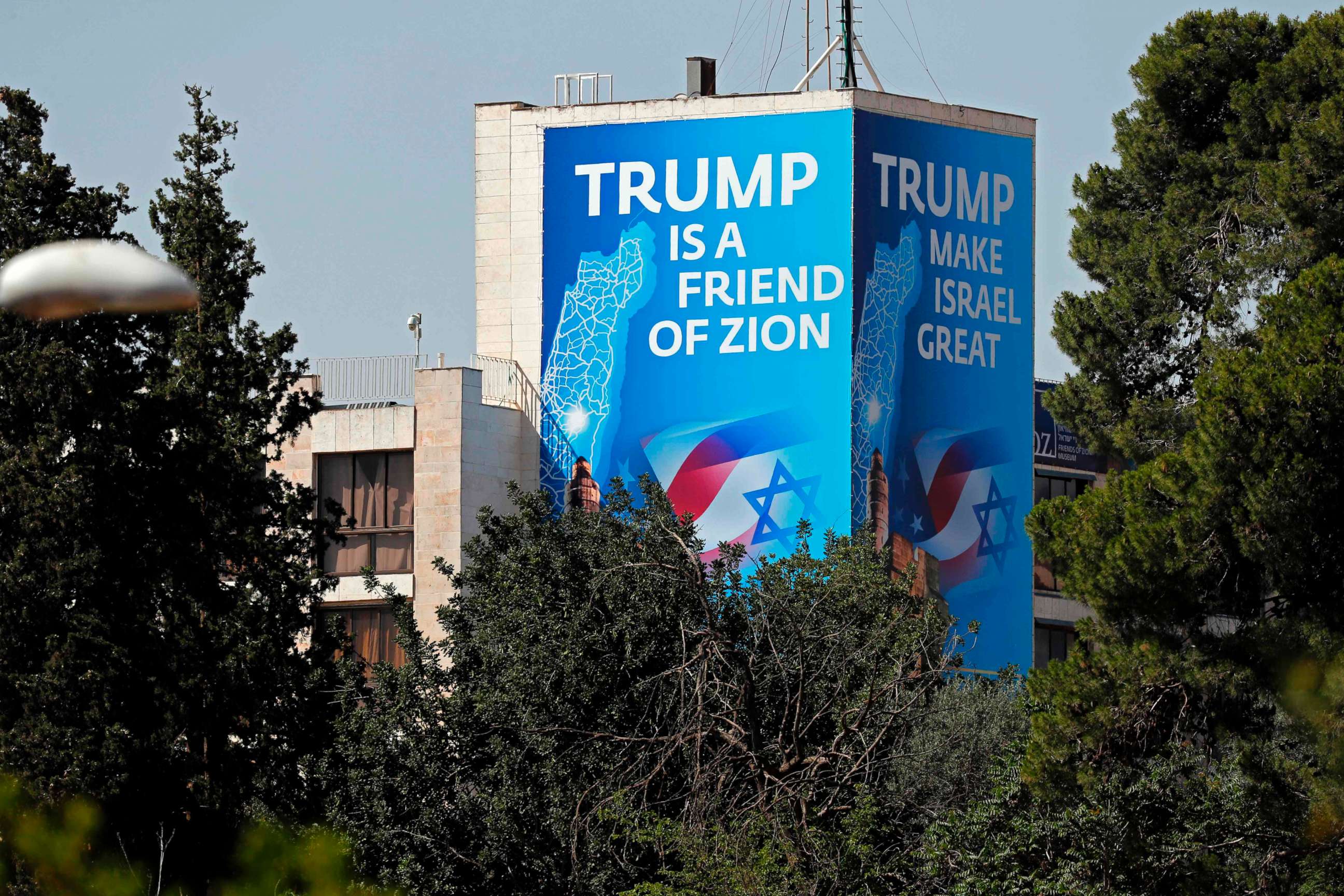
Trump will address Monday's ceremony by video, and he'll be represented by his daughter and adviser Ivanka Trump and son-in-law and adviser Jared Kushner. The U.S. expects some 800 people to attend the event, including a large congressional delegation and the presidential delegation led by Deputy Secretary of State John Sullivan.
The new U.S. Embassy will inhabit a building in Jerusalem already used by the U.S. for visa and immigration services. It’s located in the residential neighborhood of Arnona -- in part on no man’s land between East and West Jerusalem -- but it’s not a fortress, like the U.S. Embassy in Tel Aviv, and it’s not a beautiful old Ottoman-era building like the current U.S. Consulate in Jerusalem, which is located closer to the Old City and primarily deals with the Palestinians.
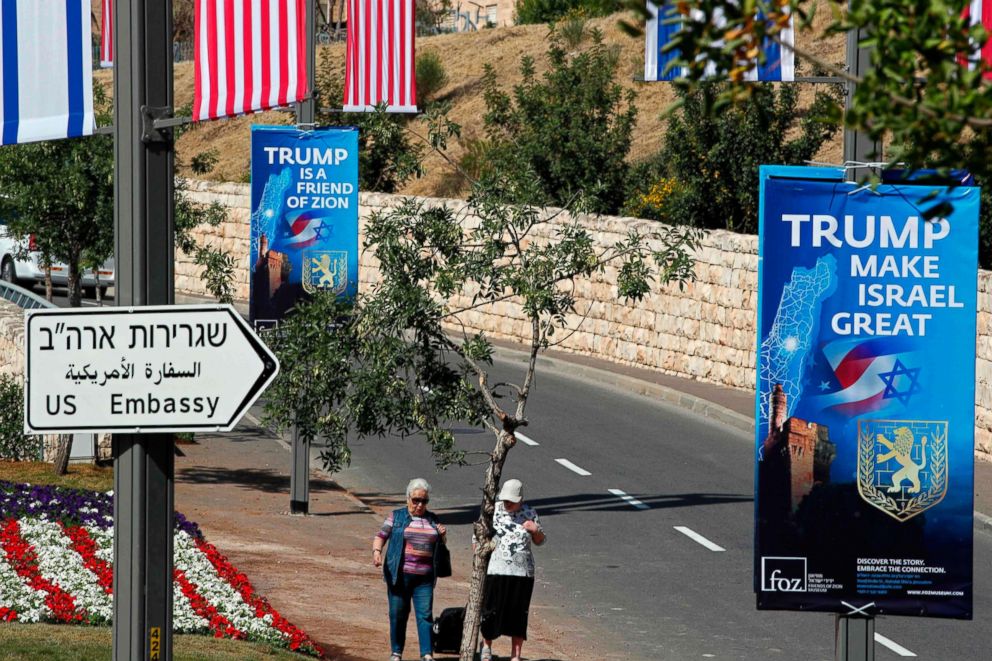
U.S. officials have insisted that the embassy opening in Jerusalem doesn't change longstanding U.S. policy and that future peace negotiations should still decide the final status of Jerusalem. Israel claims the city as their "undivided, eternal" capital, while Palestinians claim East Jerusalem as a capital of their future state.
But after U.S. Ambassador David Friedman moves into his new office on Monday -- in "Jerusalem, Israel" in his words -- it's a tough argument to swallow for Palestinians even at a time when there is no peace process to speak of. There were protests across Jerusalem and in the West Bank, which is occupied by Israel, in December over the U.S. decision to recognize Jerusalem as Israel’s capital. In a briefing with reporters on Friday, the Israeli military warned of the potential for similar protests on Monday.
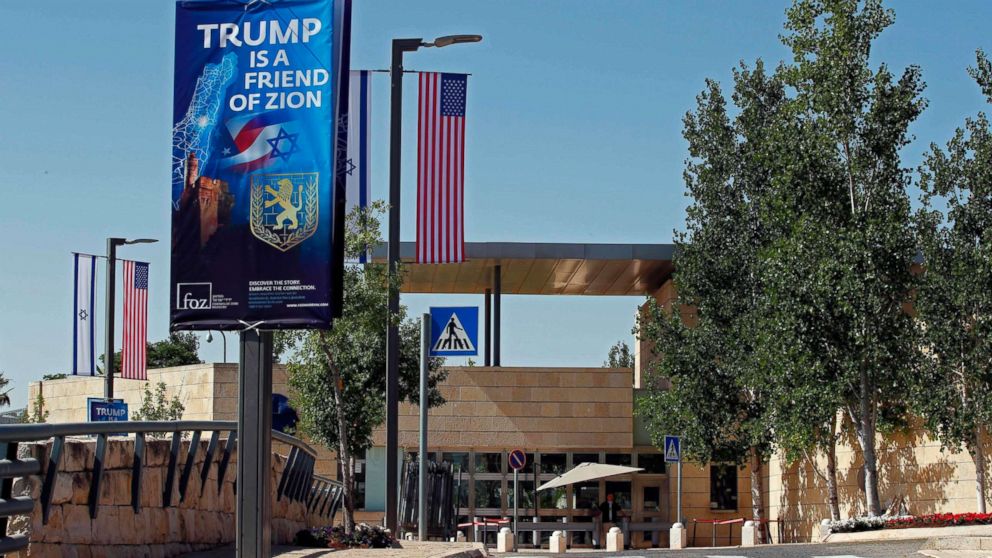
For the most part, though, Palestinians and Israelis have been focused elsewhere this week.
Palestinians in Gaza have mounted weeks of Friday protests as part of what they are calling the Great Return March that will peak May 15, the day after the embassy opening, on Nakba Day, or "catastrophe." Nakba Day comes one day after the anniversary of Israel’s independence, according to the Gregorian calendar; Israelis are celebrating the 70th anniversary of their country’s founding this year. For Palestinians, Nakba Day commemorates the mass displacement of Palestinians who fled or were expelled after Israel’s founding.
In the recent weekly protests, the Palestinian Health Ministry reports more than 40 Palestinians have been killed and thousands more injured by Israeli soldiers on the other side of the fence. The Israeli military estimates some 15,000 protesters showed up Friday, and according to the Palestinian Health Ministry, at least one Palestinian was killed. According to the Palestinians, Tuesday will be the day to watch in Gaza.
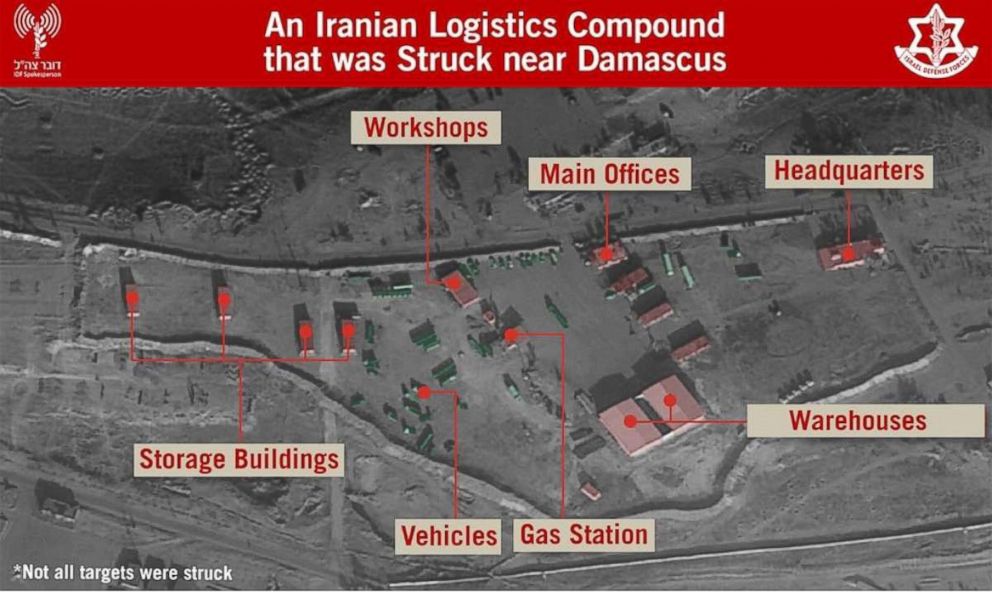
Amid all of that comes a dramatic escalation on Israel's northern border. Since the Syrian war started, the growing Iranian presence on the other side of the border has been one of, if not Israel's most pressing national security issues. When the U.S. withdrew from the Iran nuclear deal, the Israeli military put their bases on high alert in the Israeli occupied Golan Heights, right on the border with Syria. The timing of this week's cat-and-mouse game is not necessarily directly related to the U.S. move, but analysts say Iran may have felt free, for the first time, to respond outwardly.
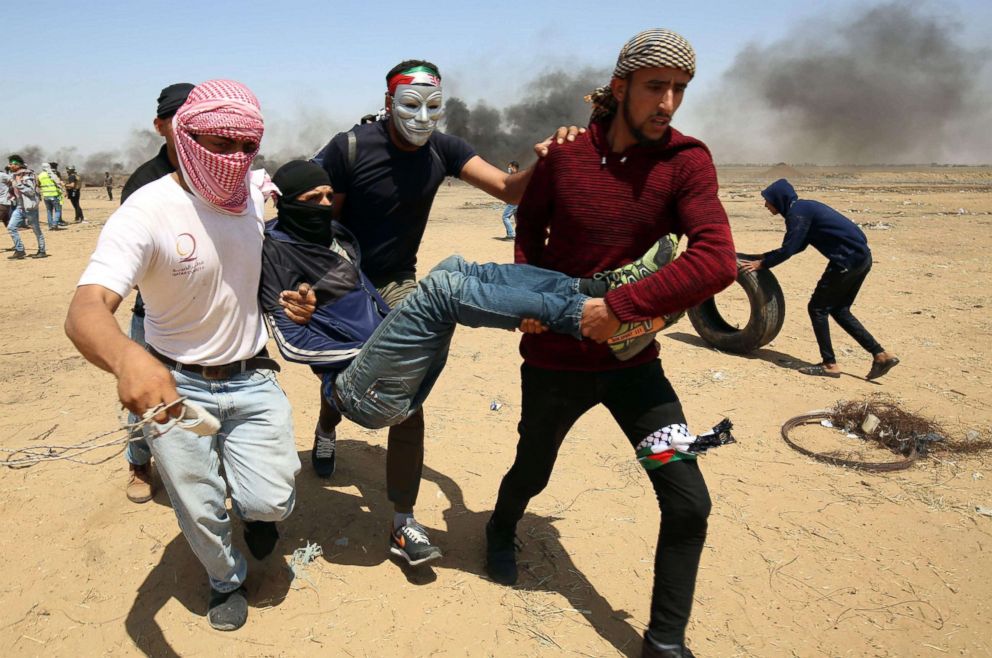
Israel has struck Syrian and Iranian assets inside Syria more than 100 times over the past several years, but this is the first time since 1974 that Iran has responded directly, targeting the Golan Heights, according to the Israeli military. There are no proxies anymore; this is a direct confrontation.
Iran has been one of Syrian President Bashar al-Assad's staunchest allies, and as Assad continues to cement control, it frees up Iranian assets. That is what Israel is worried about.
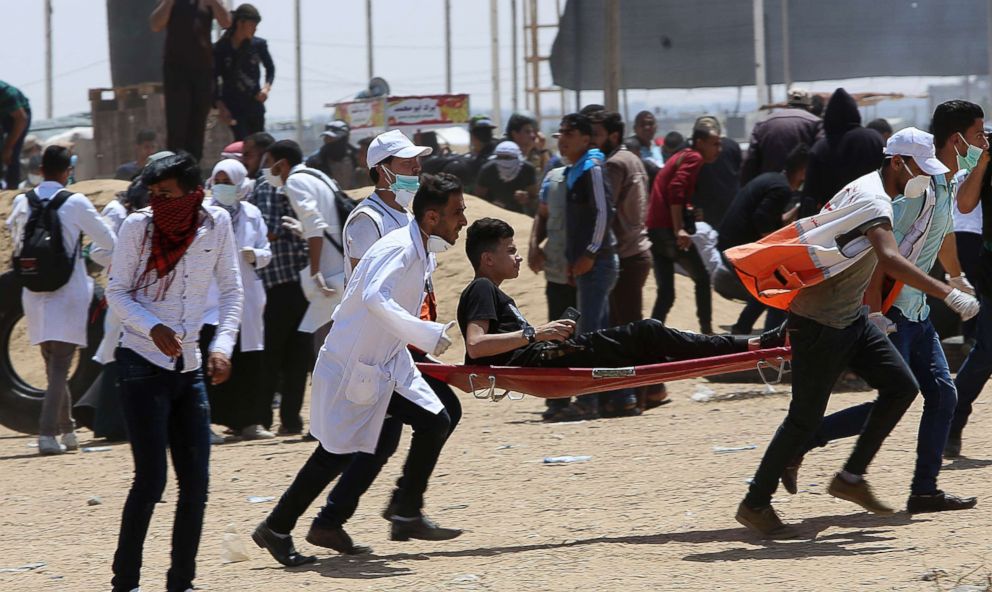
But despite fiery rhetoric from Israeli leaders, analysts say, neither side is looking to start an all-out war. Not now.
So, for Israelis, while the strikes dominated front pages on Friday, life continued as normal, as it so often does here. Jerusalem streets were busy, Muslim prayers on Friday in the Old City went off without a hitch, and the city wound down on Friday evening, quietly in both the east and the west. And in Gaza, there will be a single funeral Saturday, after the deadliest six weeks the strip has seen since the last Israeli-Gaza war.
Even for a place used to living on edge, next week will be a high-stakes stress test.




